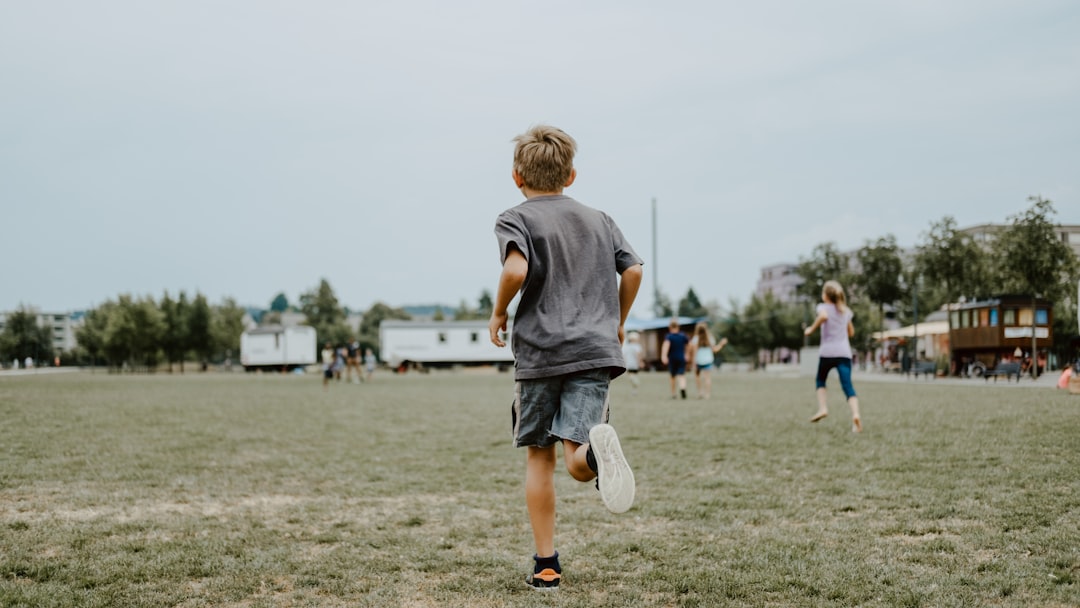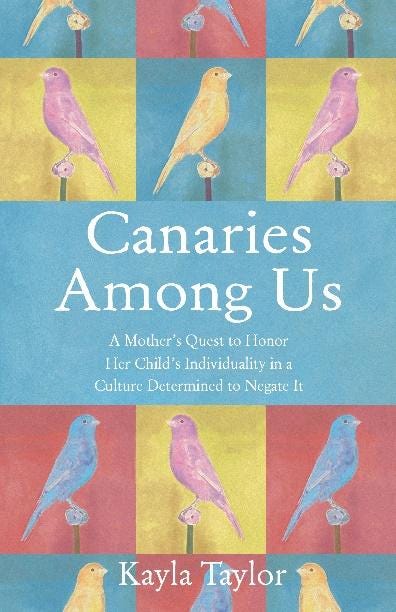Thanks for reading Raising Good Humans on Substack. Please consider a paid subscription to support this work and get access to my invite only Ask Me Anything Parent Group at the end of every month. Paid subscribers will also get a preview of my new book, and the chance to participate in a book club in the Fall. Founding members on Substack also receive a private 1:1 consultation with me, where we can focus on any of the issues that matter most to you.

This week, I wanted to elevate one of the parent voices I was introduced to, Kayla Taylor, author of the book Canaries Among Us. Kayla offers a raw view into the joy and heartache of raising children challenged by learning differences, anxiety, and bullying. I asked her to step in this week for a take on bullying from the parent perspective. I think we can all learn from this heartfelt and thoughtful piece, and I’m grateful to share it with you.
What Can We Do About Bullying?
Nobody believes bullying is good, yet it pervades schools everywhere. And to date, most intervention programs are only marginally successful. So what can we do?
Well-meaning adults often advise the aggressor to be kinder and the target on ways to become less vulnerable. While these efforts are well-intended, they often don’t garner ideal results. Why?
As most of us have experienced, children who attack others regularly deny culpability to avoid punishment. They might be forced to offer apologies anyway, but the words can feel hollow, especially without any sincere attempt at repair. And a limited number of school administrators are trained in child development, trauma, or restorative justice, so it’s difficult for them to address the deep-seated needs of those who victimize others. Aggressors’ parents also tend to resist accountability. It’s just so hard to consider that our children might have intentionally harmed others. So we turn to the targets. We suggest they be “less sensitive” or “toughen up,” as if denying pain eradicates it. In extreme cases, we might even coach targets to retaliate verbally or physically. Unfortunately, this advice can do more damage than good. Targets are chosen specifically because they have less power, so their ability to influence outcomes is minimal by design. We also need to realize that when we tell targets to behave differently … when we assign to them the onus of repair … we are essentially victim-shaming them. We are telling them that they need to change, not the aggressor. And that they, the targets, are perhaps even at fault for their own abuse.
So, what else can be done? Fortunately, there are powerful alternatives. Key research shows that bystanders hold crucial roles in upsetting the dynamics of abuse and reinforcing cultures of inclusion and caring. Unfortunately, bystanders are often given unhelpful, or even dangerous, advice, like “Stand up to the bully,” which risks inflaming the aggressor and making the bystander vulnerable to attack themselves. Interestingly, research shows the opposite reaction might be more helpful. Bullying is often mitigated when bystanders walk away unimpressed. Dwindling audiences can be less compelling to those students who seek attention through power displays. Research also finds that when bystanders reach out to targets, even after the fact, the traumatic impact of the bullying is lessened. Acts of compassion tell targets they are worthy of kindness and belonging—that peers don’t believe they deserve mistreatment—and this can make a huge difference.
Through experience, I’ve come to believe that another role might be even more pivotal than that of the bystander: the bystander’s parents, especially for younger children. When I tried to advocate for my own child, I was dismissed reflexively, and not just by school officials who appeared more concerned with protecting the school’s pristine reputation than children’s wellbeing. My peers, fellow parents themselves, also didn’t want to be associated with problems. In fact, I began to notice how most adults who advocated for their mistreated children were regularly regarded as indulgent “helicopters” who just needed “to chill out.” Also, the parental community seemed to assume that if kids were bullied for being “weird,” then the target’s parents were “weird” … and unworthy of decency … as well. Thus, entire families were stripped of power and dignity. But if parents of bystander children instead offer solidarity, the entire dynamic can change. They not only build a “village” around those most in need, but they also role model compassion for their own kids.
While there are many ways to promote caring, inclusive communities, I found one simple tactic to be life-changing: avoid calling people “weird,” “strange” or “crazy.” These words are omnipresent, but they marginalize. And they teach our kids that it’s ok for them to demean others as well. I can’t tell you how often I overhear teenagers around town using these words to describe classmates. So, now, when I hear my elementary-aged kids use them, I seize the opportunity to teach them about the implications. I hope that by appreciating—and even celebrating!—people’s differences, we can honor the wide variety of our humanity. I believe we can even elevate joy.
So I ask you to take a moment to contemplate: Is there a parent in your community who reported bullying or another form of mistreatment? Can you picture this person? Now consider, How did you respond? Did you assume the targeted child is “odd” and the parent an overly sensitive “helicopter”? Did you believe the wrongdoing is someone else’s problem? Or, did you respond by saying something like, “What you’re reporting sounds awful. Can you tell me more? How can I support you best right now?” This kind of allyship changes communities … and the world.
Kayla Taylor is a best-selling writer, researcher, advocate, and parent. Her book Canaries Among Us is sold nationwide.






Thank you for highlighting the importance of families in the bullying dynamic. Students with disabilities are more likely to be involved in bullying so your point about being careful with how we describe others as well taken. There's always greater power in numbers when it comes to bullying. It's on all of us to make sure the numbers are on the right side.
Thank you so much for lifting up the need to support acceptance of ALL children and parents. This is such an important topic always but especially as we move into spring sports and summer camps which I am learning so much more about as the parent of three young children.